Published: October 20, 2008
written by N. West Moss
There are no pink ribbons to wear if you’ve had a miscarriage, no walkathons or T-shirts to encourage awareness and prevention. And to the extent that we have a language to talk about miscarriage, it’s full of airy platitudes: “Don’t worry, I had one once, too,” or “I had two, and then — poof — Davey was born, and he’s graduating from college this week.”
But until you belong to the imaginary club of Mothers Without Children, it is a secret planet of pain, all but invisible to the outside world.
I recently had my third miscarriage in a year. It happened early in the pregnancy, and it was dismissed as no big deal — “chemical pregnancy” seems to be the term of art. Let’s not overreact, no need for hysterics, keep moving. “We’ll treat it as though you’re just getting your period,” as my doctor put it.
But honestly, it is not just like getting your period. Psychologically, of course, it is nothing like it, but physically it is different, too. I had cramps for hours that left my ribs feeling bruised, and then four days later I was back at work and exhausted because I was still bleeding a lot — not an alarming amount, but enough to make me schedule meetings in rooms near bathrooms, and to send me home in the afternoon for a two-hour nap. I wonder how men would cope. All of the pain, mess, furtive tidying-up, shame and soldiering-on seem so fundamentally female to me.
People act as if a miscarriage were a locatable event on a calendar, with a beginning, a middle and an end. But in fact it starts when you feel that first unmistakable twinge that something is totally wrong. It continues through the rough days of sorrow and deep cramps, and then it meanders through every single day of the rest of your whole stupid life. I will probably mourn about this miscarriage in some outwardly unremarkable way until I either have a healthy baby or die.
Talking about miscarriages is so loaded and pitiful and hushed and fraught with meaning about age and usefulness. It feels as though having three miscarriages in a year means I did something wrong, when the reality is that most miscarriages take place for chromosomal reasons out of our control.
Yet a woman who has had a miscarriage has likely asked herself why. “God must not want me to have a kid,” she might think, or “I am too old.” There are moments when you can feel that the miscarriage and the calamities of the world are your own doing and you should have somehow known better.
Maybe we don’t talk about our miscarriages because we don’t want women with children looking at us with pity, or teenagers in their immortality-flushed way thinking, “That’ll never happen to me.” We do not want happy families to whisper, “Thank God that’s not us.” We don’t want to wonder if men are thinking, “If they can’t have kids, then why are they here, anyway?”
I cannot tell you, though, what you should say to women who have had miscarriages. While it can be touching to hear other women’s stories, it can also be irritating: it makes our moment of extraordinary sadness feel ordinary and unremarkable. Why would I want to hear about your miscarriage when I am lying on the floor trying to lift 500 pounds of failure, disappointment and crashing hormones off my chest?
I can tell you that I want people to know. I don’t want it to be a secret or a shadow or something that is endured only alone. I want people to know that I have been through something, that I am tired but optimistic, that I’ve been knocked down but don’t help me up because I can get up myself.
It’s fair, I think, to want witnesses for our suffering. But with the sorrow also comes hope. And after all, we are resilient creatures. A friend of mine said it well in an e-mail message after she heard my news. “I hope you don’t give up,” she wrote. “I want to take a picture of your child one day against the tallest sunflower.”
1 year ago








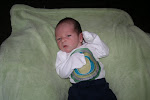
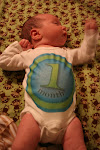
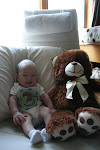




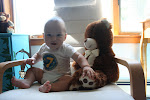
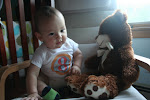





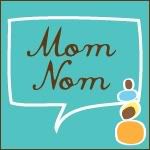

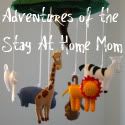











3 comments:
I am delighted that you posted my article on your site. Would you mind adding my name as well? (N. West Moss)
Many thanks and I enjoyed reading your painful but beautifully written description of your journeys in this awful realm. I don't know if it helps you, but it helps me to know that I am not alone, not the only person struggling to find meaning in sadness. N. West Moss
This is a great article - cool that the original writer saw it on your blog.
thanks!
Post a Comment